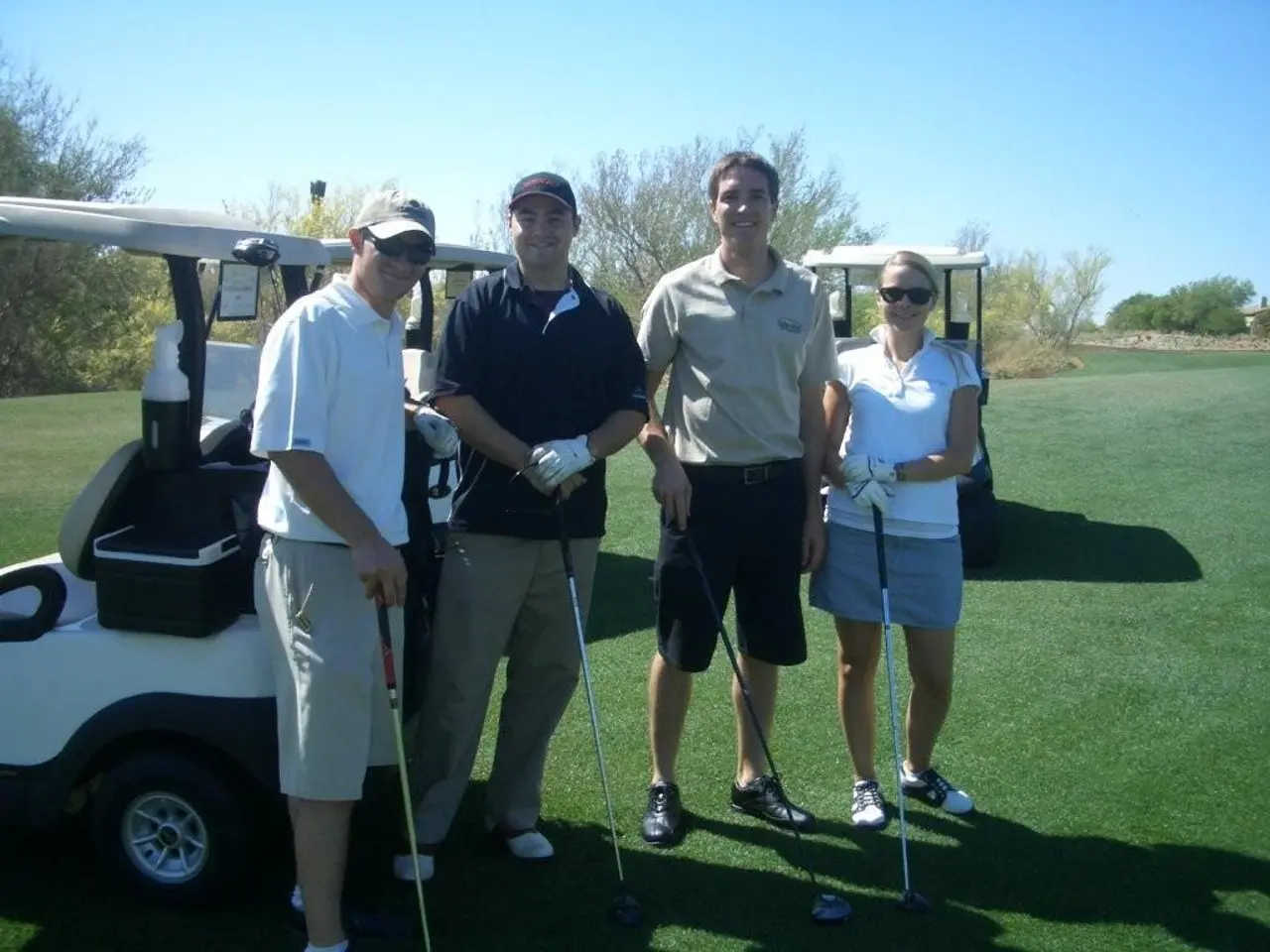Golf improvement focus on starting point: Assess your grips for improved performance
In the world of golf, the grip is often an overlooked yet crucial piece of equipment. A key factor in a successful swing, a well-chosen grip can significantly improve a player's performance and consistency, while a worn or ill-fitting grip can compromise these aspects.
For beginners and high handicap golfers, rubber grips like Golf Pride's CPX and Tour Wrap offer a softer feel, providing comfort and control. These grips are popular for their ability to tighten dispersion, improve strike location, and increase ball speed.
On the other hand, corded grips like Golf Pride's Tour Velvet Cord and MCC Plus 4 offer a firmer feel and rugged texture, preferred by better players. These grips offer a firmer feel and enhanced control, which can help promote a faster release for golfers with large hands, or minimize face rotation for those with 'twitchy' hands.
However, worn grips can cause tension to build in the hands, wrists, and forearms, restricting swing fluidity, reducing clubhead speed, and leading to inconsistent ball-striking. Signs that grips need replacing include cracks, splits, indentations, fading logos, discoloration, smooth shiny spots, and glossy or slick surfaces.
Excessive grip pressure can also cause the hands to fatigue prematurely, leading to loose shots. To combat this, a jumbo grip might be suggested for golfers with large hands or those prone to excessive grip pressure.
Playing with worn grips can significantly compromise performance and consistency, similar to driving a car with bald tires. A teaching professional might consider poor golf grips to be near the top of the list of common mistakes with club golfers' equipment.
Finding the right grip model can seem complicated, but a fitting expert can help find a suitable model quickly. The Golf Pride website offers a comprehensive range of grips, and users can find their nearest stockist. As a leading global manufacturer of grips, Golf Pride employs the world's best players.
Common grip-related faults among club golfers advised by professionals include worn-out or slippery grips and incorrect grip size. Alternatives when replacing grips are using different grip materials (e.g., rubber, corded) or sizes tailored to hand size, and selecting grips that enhance comfort and control to improve performance.
In conclusion, the grip is a vital component in a golfer's arsenal. By choosing the right grip, maintaining its condition, and ensuring a comfortable fit, golfers can enhance their performance and swing efficiency, ultimately leading to improved consistency and lower scores on the course.
Read also:
- Stopping Osteoporosis Treatment: Timeline Considerations
- Tobacco industry's suggested changes on a legislative modification are disregarded by health journalists
- Trump's Policies: Tariffs, AI, Surveillance, and Possible Martial Law
- Expanded Community Health Involvement by CK Birla Hospitals, Jaipur, Maintained Through Consistent Outreach Programs Across Rajasthan




